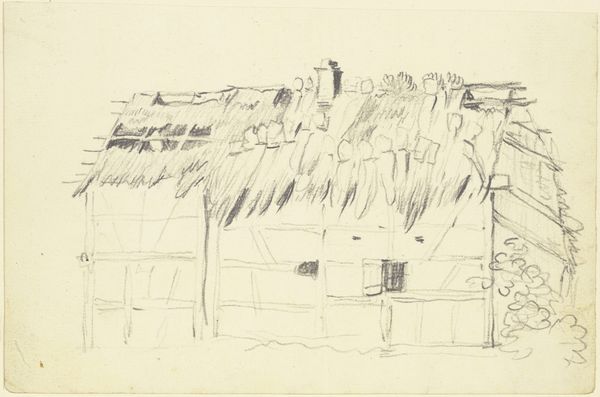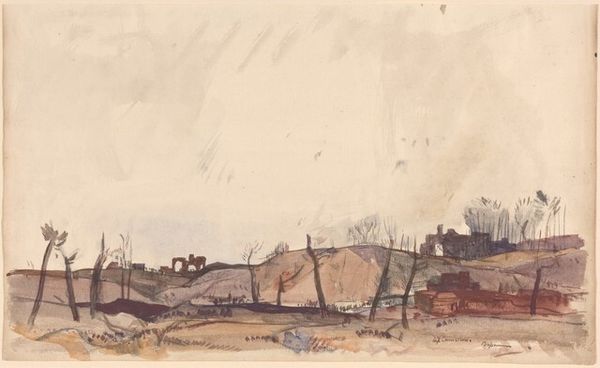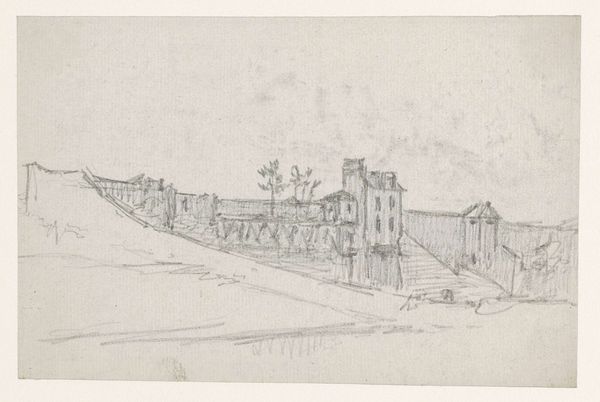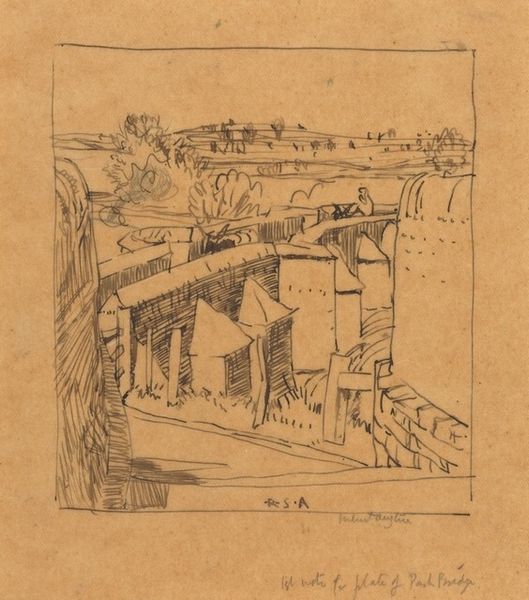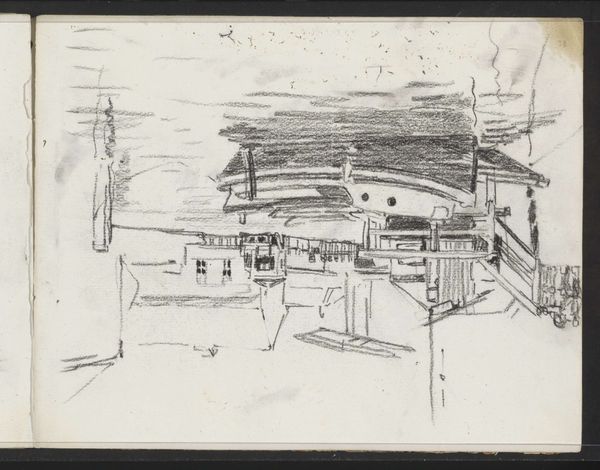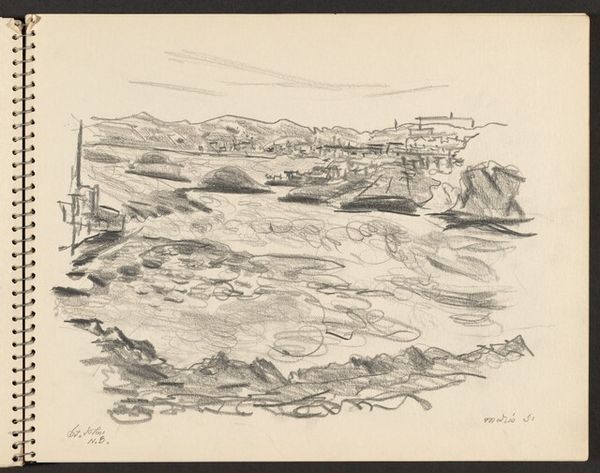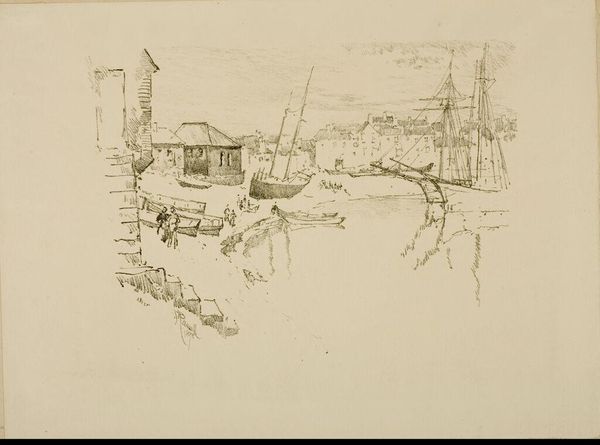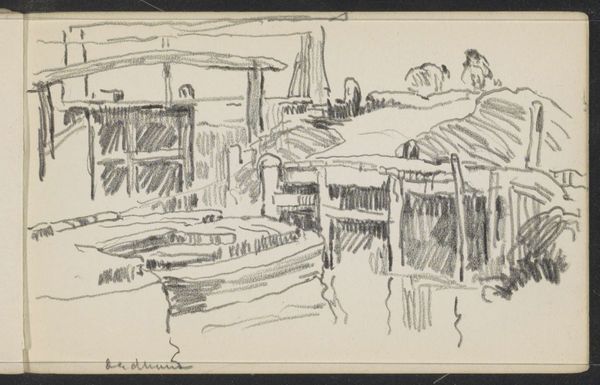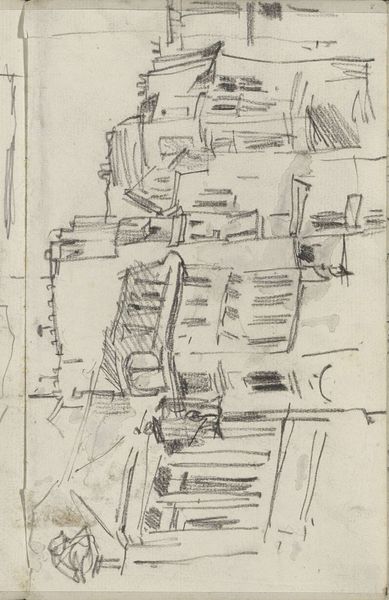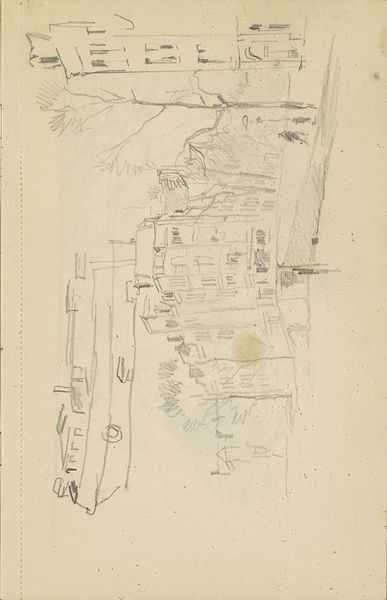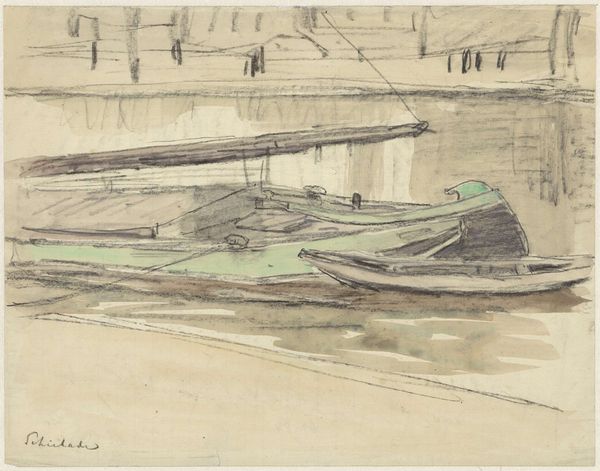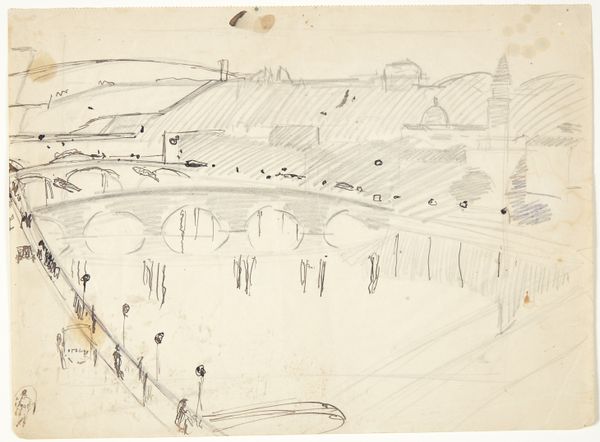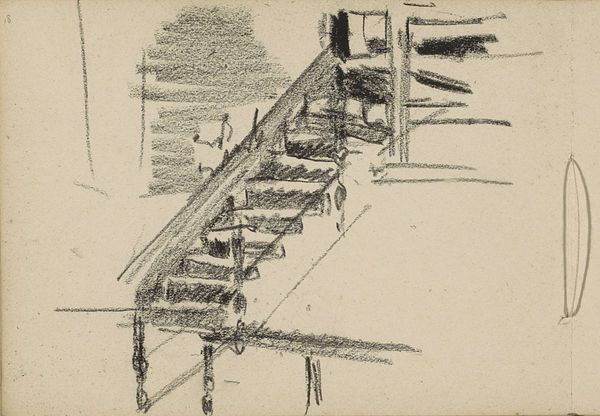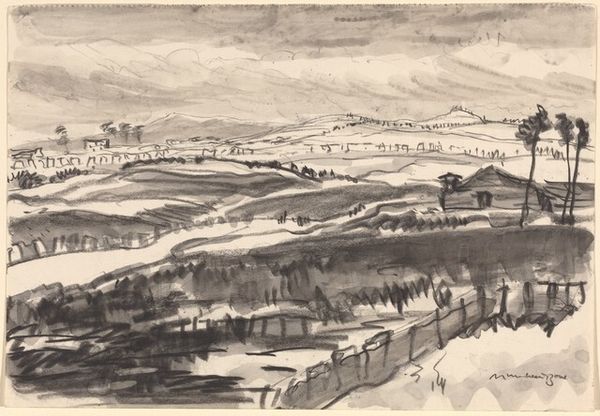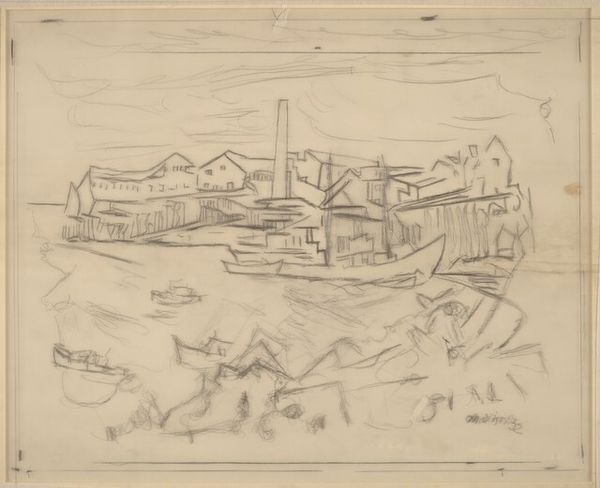
drawing, watercolor
#
drawing
#
water colours
#
landscape
#
watercolor
#
abstraction
#
cityscape
#
watercolor
Copyright: National Gallery of Art: CC0 1.0
Editor: Okay, so here we have "Urban Landscape" by Mark Rothko, done with watercolors. The cityscape is, well, hazy almost. The way he's used the watercolor feels really industrial, not at all delicate. What can you tell me about it? Curator: The interesting thing here is how Rothko, usually associated with abstract expressionism, engages with the gritty reality of urban life. Watercolor, often considered a 'polite' medium, is subverted. The washes and strokes become records of industrial process. What kind of labor do you imagine taking place within this cityscape? Editor: I think it looks like... warehouses? Maybe some sort of factory work, especially with that smokestack. So, it’s about labor…how does the abstraction tie in? Curator: Precisely! It's crucial to look at *how* Rothko has depicted labor, and in what form. Is he valorizing production, or is the indistinct form reflecting a kind of alienation? Consider how the lack of specificity impacts our understanding of the laborers' experience, what is being made and its role in a burgeoning materialist culture. The blurring is key to unlocking that question. How do the repetitive shapes speak to industry to you? Editor: That's interesting. It's almost dehumanizing, maybe? Like cogs in a machine. Curator: And who consumes the product of these labours? This is not the idyllic landscape painting of previous generations celebrating rural craftsmanship; it's questioning the human cost and celebrating productivity with cheap media in times of industrial production.. The use of water colours suggests a world where consumerism, production, and exploitation exists. Do you see any indication that the hand of the artist, as in a bravura brushstroke, attempts to make beauty of a scene such as this? Editor: Not really, it seems like that idea is being deliberately avoided. I never considered the economic angle when looking at Rothko, this helps a lot. Curator: Exactly! By observing artistic materiality and methods, we discover how even familiar abstract shapes engage within larger debates concerning social value. It pushes one to wonder about other forms by the same artist that appears to ignore cultural cues of class production but truly only obscure those same cues from a direct material reality, just beneath the picture plane.
Comments
No comments
Be the first to comment and join the conversation on the ultimate creative platform.
